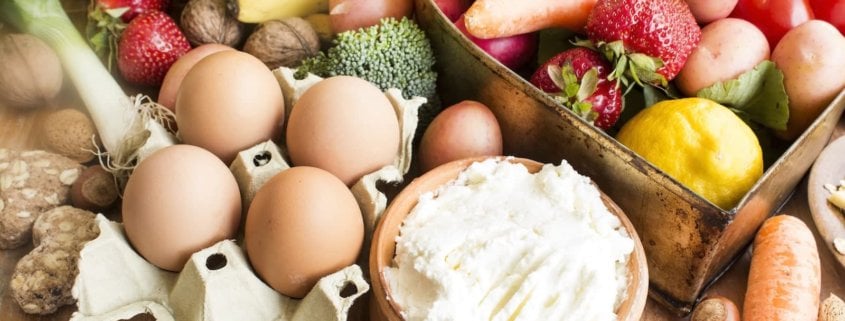Whole Food B-Vitamins Could Help Your Fatigue
Feeling down in the dumps? On your second cup of coffee, but still struggling to wake up? Or maybe counting the hours until you get home while having a hard time focusing on the task at hand? Could it be due to all those late nights you’ve been spending at the bar or out with friends? Could be… But, if you have been like this for days on end, then you may want to look into your vitamin-B complex intake. Whole food B-vitamins play a crucial role in various bodily functions from the conversion of food to energy, production of red blood cells, neurotransmitters, and hormones. Let’s take a closer look at the important whole food B-vitamins.
Vitamin B1
Also known as thiamine, when you are deficient in this area you experience muscle weakness, memory loss, confusion, and poor appetite to name a few. Consume more tuna, mussels, trout, pork, black beans, and whole grains.
Vitamin B2
With an inadequate intake of Riboflavin or Vitamin-B2, you may experience cataracts, anemia, nervous/reproductive system problems, liver disorders, sore throat, and skin conditions to name a few. Add enriched whole grains and fortified cereals in your diet.
Vitamin B3
For a healthy digestive system function, Niacin or Vitamin B3 is needed by the body in adequate amounts. If deficient, you may experience scaly skin sores, inflamed mucous membranes, digestive problems, mental impairment, and confusion. Foods rich in niacin are enriched bread, fortified cereals, rice, dairy, peanuts, poultry, lean meat, fish, and eggs.
Vitamin B5
Pantothenic Acid or Vitamin B5 is essential in the carb and fat breakdown for energy. A deficiency of this vitamin causes loss of appetite, digestive problems, sleeping problems, restlessness, irritability, headache, and extreme fatigue to name a few. Eat more of chickpeas, sunflower seeds, peanuts, whole grains, broccoli, potatoes, milk, eggs, organ meats, seafood, poultry, and beef.
Vitamin B6
Pyridoxine plays a crucial role in over 100-enzyme reactions in the body. A deficit can cause weak immunity, confusion, depression, and anemia to name a few. Vitamin B6 rich foods are fortified cereals, organ meats, fish, poultry, fruits, and starchy vegetables.
Vitamin B7
Another name for this vitamin is biotin and is responsible for healthy nails, skin, and hair. A deficiency of this vitamin causes problems with hair, skin, and nails. Increase consumption of broccoli, spinach, sardines, whole grains, almonds, sweet potatoes, sunflower seeds, wheat germ, egg yolks, organ meat, pork, and beef.
Vitamin B9
Folate is essential in DNA synthesis, and a deficiency can cause low birth weight, anemia, weak growth, diarrhea, and gingivitis to name a few. Foods rich in folate are rice, enriched flour products, cereals, and other fortified foods.
Vitamin B12
Likewise known as cobalamin a deficiency can lead to tinnitus, a decline in memory and cognition, mood swings, depression, dizziness, shortness of breath, appetite loss, and digestive problems to name a few. Foods rich in cobalamin are milk, eggs, poultry, fish, clams, beef liver, and fortified yeasts and cereals. Our team has also found a way to concentrate vitamin B12 in plants, contact us to learn more!
Looking for Plant-Based, Whole Food B-Vitamins?
Look no further! We developed our GrandFusion products to change the way manufacturers add vitamins and minerals to their packaged foods. Our concentrated fruit and vegetable powders are easy to add without impacting the flavor or texture profile of the end product. If you are just a regular consumer wanting to add the plant-based B-vitamins to your smoothie at home, we have a product for you too! Check out our store to try your favorite GrandFusion product with up 23 vitamins and minerals in one blend.
Inspired by www.wellandgood.com




